|
My blog posts revolve around my interests and vocation as a historian: the intersection of history and contemporary church life, the intersection of history and contemporary politics, serendipitous discoveries in archives or on research trips, publications and research projects, upcoming conferences, and speaking engagements.
I sometimes blog for two other organizations, the Canadian Baptist Historical Society and the Centre for Post-Christendom Studies. The views expressed in these blogs represent the views of the authors, and not necessarily those of any organizations with which they are associated. |
|
Like Canadian Baptists in Central and Eastern Canada, churches of the Baptist Union of Western Canada (BUWC) faced severe hardships due to the "Spanish Influenza" sweeping across Canada and the globe. The monthly newspaper called the Western Baptist provided commentary on the impact of the pandemic on BUWC local churches. And, as the commentary below indicates, the impact varied from congregation to congregation. The responses of the churches was impressive, with a wide variety of ministries offered to the suffering. The following is a brief snapshot of the churches during those dark days. 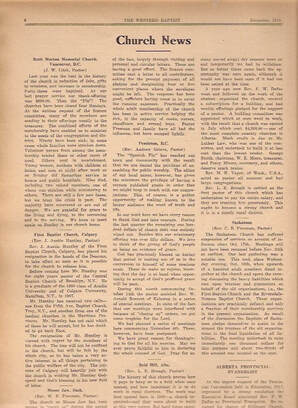 The church in Moose Jaw, Saskatchewan, attempted to "carry on through the period of the ban" through "visiting, and personal and circular letters." The church's finances took a blow due to no services being held, and the finance committee needed to send out notices to inform members where they could drop off money to keep the ministry afloat. The church was active in helping in the midst of the pandemic, with the "whole adult membership of the church...helping the sick in the capacity of cooks, nurses, chauffeurs and errand boys." The pastor and his family did get sick, but "escaped lightly." Ruth Morton Memorial Church in Vancouver was closed for weeks, with many members getting sick and a number dying. Many members acted as "volunteer nurses" tending to the needy in the church, and others worked in the city carrying out "Samaritan work" in hospitals and homes. The church in Droxford, Saskatchewan, was closed for two months. The work in the church was "severely hindered," but fortunately there were no deaths. Rapid City Baptist Church lost a young man to the flu. He had been working on a power plant. The church in Kelowna had to cancel its fall revival services. The church continued to meet in smaller groups ("cottage meetings") in homes, and distributed tracts and Gospels. Some churches in Alberta had been closed for nine weeks and counting. One women in Vancouver nursed the child of a woman who died with the flu, and did so until she herself was stricken with the illness. McDonald Church in Edmonton was closed for seven Sundays, as was First Baptist in Dauphin. The BUWC annual meeting was not postponed due to the pandemic because its meeting was early in the new year (unlike central and eastern Baptists who had to postpone their fall meetings in what had been prime-time pandemic season). The leaders met in Moose Jaw, Saskatchewan, in January 1919. The pandemic was not over, but the churches had weathered the worst of the storm and there was cautious optimism about the future.
There is much more to be done in terms of researching the responses of the churches to the pandemic, but a lesson for today that can be gleaned from their experience is that one way to deal with such a crisis is to "help the sick in the capacity of cooks, nurses, chauffeurs and errand boys."
0 Comments
Leave a Reply. |
Archives
May 2024
|
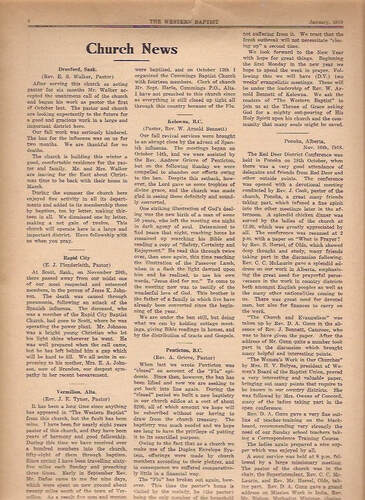
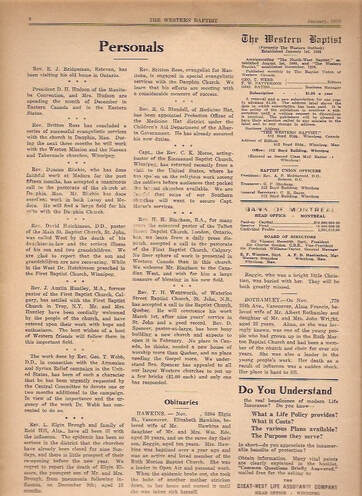
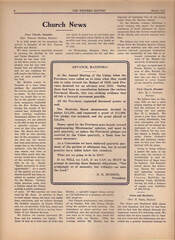
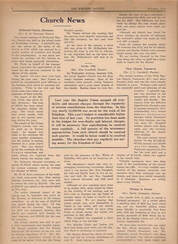
 RSS Feed
RSS Feed
